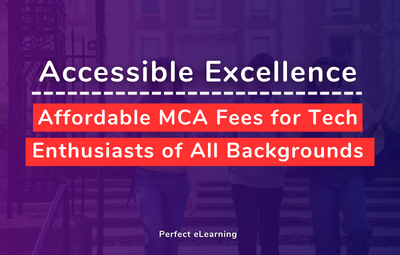

Welcome to the world of MBA admissions! Pursuing a Master of Business Administration (MBA) can be a life-changing decision, opening doors to new career opportunities, personal growth, and professional advancement. However, before embarking on this transformative journey, it is essential to understand the MBA admission process, including its application requirements, interviews, and selection criteria.
Importance of MBA Admission Process
The MBA admission process plays a crucial role in evaluating candidates' suitability for business school programs. Admissions committees seek individuals who demonstrate strong leadership potential, intellectual capability, and a genuine passion for business. The process not only selects candidates who meet academic criteria but also aims to create a diverse and dynamic cohort of students who can contribute to the overall learning experience. It is a rigorous process designed to identify candidates who possess the qualities required to excel in the demanding world of business.
Application Requirements
Statement of Purpose
One of the essential components of the MBA application is the statement of purpose (SOP). This is your opportunity to convey your motivations, aspirations, and unique attributes to the admissions committee. Craft a compelling SOP that showcases your genuine passion for business, highlights your career goals, and outlines how an MBA degree aligns with your aspirations.
Letters of Recommendation
Letters of recommendation are critical in assessing your suitability for an MBA program. Choose recommenders who can speak to your professional accomplishments, leadership potential, and character. Ensure your recommenders have a clear understanding of your MBA goals and can provide insightful and detailed feedback about your abilities and potential.
Academic Transcripts
Your academic transcripts provide an overview of your educational background and achievements. Admissions committees evaluate your performance in previous academic programs to assess your ability to handle the rigors of an MBA curriculum. Aim for strong academic records that reflect your intellectual capabilities and dedication to learning.
Entrance Exams
Most business schools require applicants to submit scores from standardized tests such as the Graduate Management Admission Test (GMAT) or the Graduate Record Examination (GRE). Prepare diligently for these exams and aim for competitive scores that align with your target schools' average scores. These tests assess your analytical, verbal, and quantitative skills, providing a standardized metric for evaluating candidates.
Work Experience
Work experience is an important consideration in MBA admissions. Admissions committees value candidates who have demonstrated leadership, teamwork, and the ability to drive results in professional settings. Highlight your accomplishments, leadership roles, and unique contributions in your resume and application essays.
Interviews
Congratulations! You have impressed the admissions committee with your application and have been invited for an interview. The interview is an opportunity for the business school to assess your fit within their program and for you to showcase your interpersonal skills, communication abilities, and overall personality. Prepare thoroughly by researching the school, practicing common interview questions, and articulating your goals and aspirations.
Selection Criteria
The selection criteria for MBA programs vary across institutions. However, common factors include academic qualifications, professional experience, leadership potential, and personal attributes. Admissions committees evaluate your overall profile holistically, considering your academic achievements, work experience, extracurricular involvement, and potential contributions to the MBA community. Be authentic, showcase your strengths, and demonstrate how you can add value to the program.
Financial Aid and Scholarships
Financing your MBA education is a significant consideration. Many business schools offer financial aid and scholarships to deserving candidates. Explore the various options available, such as merit-based scholarships, need-based grants, and loan programs. Submit your financial aid applications alongside your admissions application to maximize your chances of receiving financial assistance.
Choosing the Right MBA Program
Selecting the right MBA program is crucial for your personal and professional growth. Consider factors such as curriculum, faculty expertise, specialization options, alumni network, and career services. Research various business schools, visit their campuses if possible, and connect with current students and alumni to gain insights into their experiences. Choose a program that aligns with your career goals, values, and learning preferences.
Conclusion
Embarking on the MBA admission process is an exhilarating journey filled with anticipation and excitement. By understanding the application requirements, preparing for interviews, and showcasing your unique qualities, you can increase your chances of securing a spot in your dream MBA program. Remember to stay true to yourself, maintain a positive mindset, and embrace the opportunities that lie ahead. Your MBA adventure awaits!
FAQs (Frequently Asked Questions)
Q: Is work experience mandatory for MBA admissions?
A: No, work experience is not always mandatory for MBA admissions. Some programs, such as those designed for early career professionals, may accept applicants without prior work experience. However, many top-tier MBA programs prefer candidates with a few years of professional experience to contribute to classroom discussions and collaborative learning.
Q: What is the ideal length for a statement of purpose?
A: While there is no fixed word limit, it is advisable to keep your statement of purpose concise and focused. Aim for a length of around 500 to 750 words, allowing you to articulate your goals, experiences, and motivations effectively.
Q: How important are extracurricular activities in MBA admissions?
A: Extracurricular activities can provide valuable insights into your leadership potential, teamwork skills, and community involvement. While they are not the sole determinant of admission, they can complement your overall profile and help distinguish you from other applicants.
Q: Can I apply to multiple MBA programs simultaneously?
A: Yes, you can apply to multiple MBA programs simultaneously. However, ensure that you carefully consider each program's fit with your goals, research their requirements, and dedicate sufficient time and effort to each application to maximize your chances of success.


